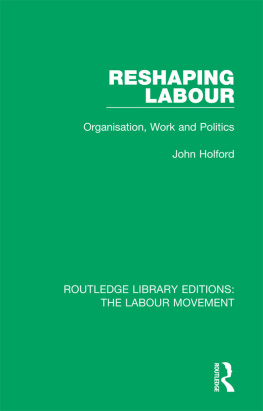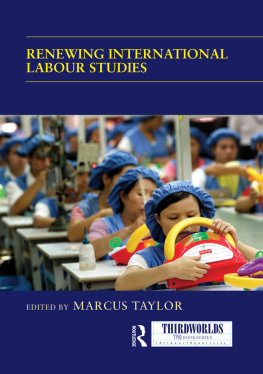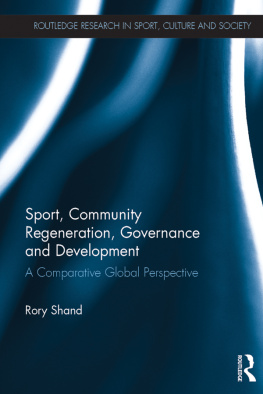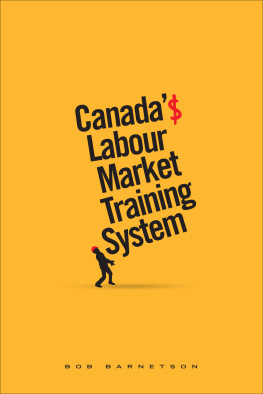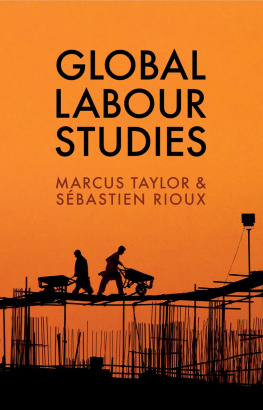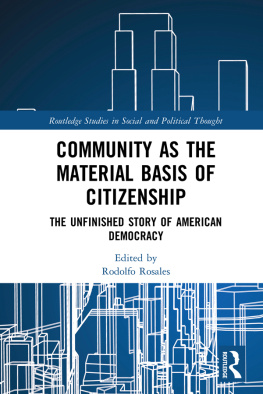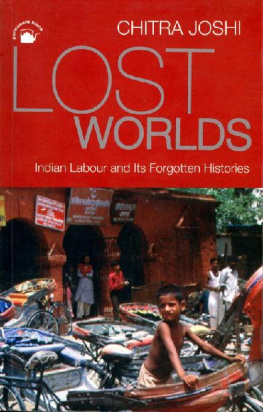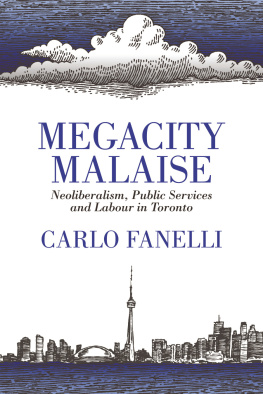First published 2010 by Ashgate Publishing
Published 2016 by Routledge
2 Park Square, Milton Park, Abingdon, Oxon OX14 4RN
711 Third Avenue, New York, NY 10017, USA
Routledge is an imprint of the Taylor & Francis Group, an informa business
Copyright Andrew Wallace 2010
Andrew Wallace has asserted his right under the Copyright, Designs and Patents Act, 1988, to be identified as the author of this work.
All rights reserved. No part of this book may be reprinted or reproduced or utilised in any form or by any electronic, mechanical, or other means, now known or hereafter invented, including photocopying and recording, or in any information storage or retrieval system, without permission in writing from the publishers.
Notice:
Product or corporate names may be trademarks or registered trademarks, and are used only for identification and explanation without intent to infringe.
British Library Cataloguing in Publication Data
Wallace, Andrew.
Remaking community? : New Labour and the governance of poor neighbourhoods.
1. Marginality, Social--Great Britain. 2. Urban poor--Government policy--Great Britain. 3. Community development, Urban--Great Britain. 4. Great Britain--Social policy--1979- 5. Great Britain--Politics and government--1997-2007. 6. Great Britain--Politics and government--2007-
I. Title
361.6';1'0941-dc22
Library of Congress Cataloging-in-Publication Data
Wallace, Andrew, 1979-
Remaking community? : New Labour and the governance of poor neighbourhoods / by Andrew Wallace.
p. cm.
Includes bibliographical references and index.
ISBN 978-0-7546-7854-0 (hbk)--ISBN 978-1-3156-0516-6 (ebook)
1. Community development--Great Britain. 2. Poverty--Government policy--Great Britain. 3. Public welfare--Great Britain. 4. Great Britain-Social policy--1979- 5. Great Britain--Politics and government--1997-2007. 6. Labour Party (Great Britain) I. Title.
HN400.C6W35 2010
307.33620869420941--dc22
2010017358
ISBN 978 0 7546 7854 0 (hbk)
ISBN 978 1 3170 6684 2 (ebk-ePUB)
Preface and Acknowledgements
The genesis of this book lies in research undertaken at the University of Leeds between 2002 and 2006 and I will always be indebted to the support and direction I was offered by colleagues whilst working there. I am particularly grateful for the encouragement and advice imparted by Alan Deacon and Kirk Mann, both of whom afforded me space and autonomy to develop my ideas and get on with the job, combined with some gentle prodding when my instinct may have been endless procrastination and tinkering. Many thanks are also due to Pete Dwyer and Simon Prideaux who were supportive throughout my time at Leeds and were always willing to offer advice when approached. More recently, thanks are extended to Peter Taylor-Gooby who offered support and insight when trying to develop and transform my ideas into a publishable manuscript.
Researching and writing the book would have been a markedly different experience but for the co-operation of my interviewees, many of whom were accommodating and engaging beyond what I could have possibly hoped. I remain indebted to those who showed a willingness to talk and engage with me when, frankly, they had more important things to do.
I would also like to thank friends old and new who have helped in their own ways to get me to this stage, through both direct support and interest, or their ability to offer distractions and diversions. Jess, my Mum, Dad and Valerie have all offered kind words and support throughout and showed faith in me which helped me survive some inevitable wobbles and decide that, yes, I really did want to do this.
Of course, despite all of these influences the work is my own and as such any faults, flaws or faux pas are entirely of my own making.
Andrew Wallace
March 2010
Chapter 1
Introduction
Preamble
My first objective in writing this book was to try to locate and disentangle its narrative threads to provide a sense of the books scope and critical preoccupations. I felt it would be useful to begin by drawing back from the details of my inquiry and paint a wider picture of what the book would be about through an early demarcation of its intellectual terrain. In light of this, my first chapter is designed to take the reader through the contexts and concerns which infuse, frame and provide the dynamic of the book. As such, I hope clear, consistent themes emerge from these initial discussions to provide something of a central thrust to the arguments posited throughout, touching as they do upon matters of government, citizenship, poverty and the sociology of community life.
Put simply, the book is concerned with projects of government that seek to affect social and behavioural change in and of poor citizens and their lived spaces. In this discussion, the key milieu is the poor neighbourhood and the use of regeneration initiatives as socio-political mechanisms to transform the spaces and places of the poor. The wider context is the opening up of new sites of governance or publics (Newman and Clarke 2009) through which new citizenships are being forged, opportunities for individual and community empowerment are being constituted and government is being rearticulated. The book is a discussion of how citizens, ensnared in these conflicting, politicised spaces, negotiate and manage the expectations that beset them when they are considered not just ordinary individuals with needs, values and relationships, but active agents of social transformation through which projects of government are valorised. Lurking ominously in the background to these exciting ruminations on the absorption of citizens into new forms of governance are the conditions of poverty, exclusion and neglect that structure and shape the lives of so many of these newly active individuals. The ensuing discussion of individual agency and the state therefore is firmly situated within an account of material, cultural and political disadvantage and I am concerned to explore how these conditions influence how residents respond to and experience new governance spaces.


